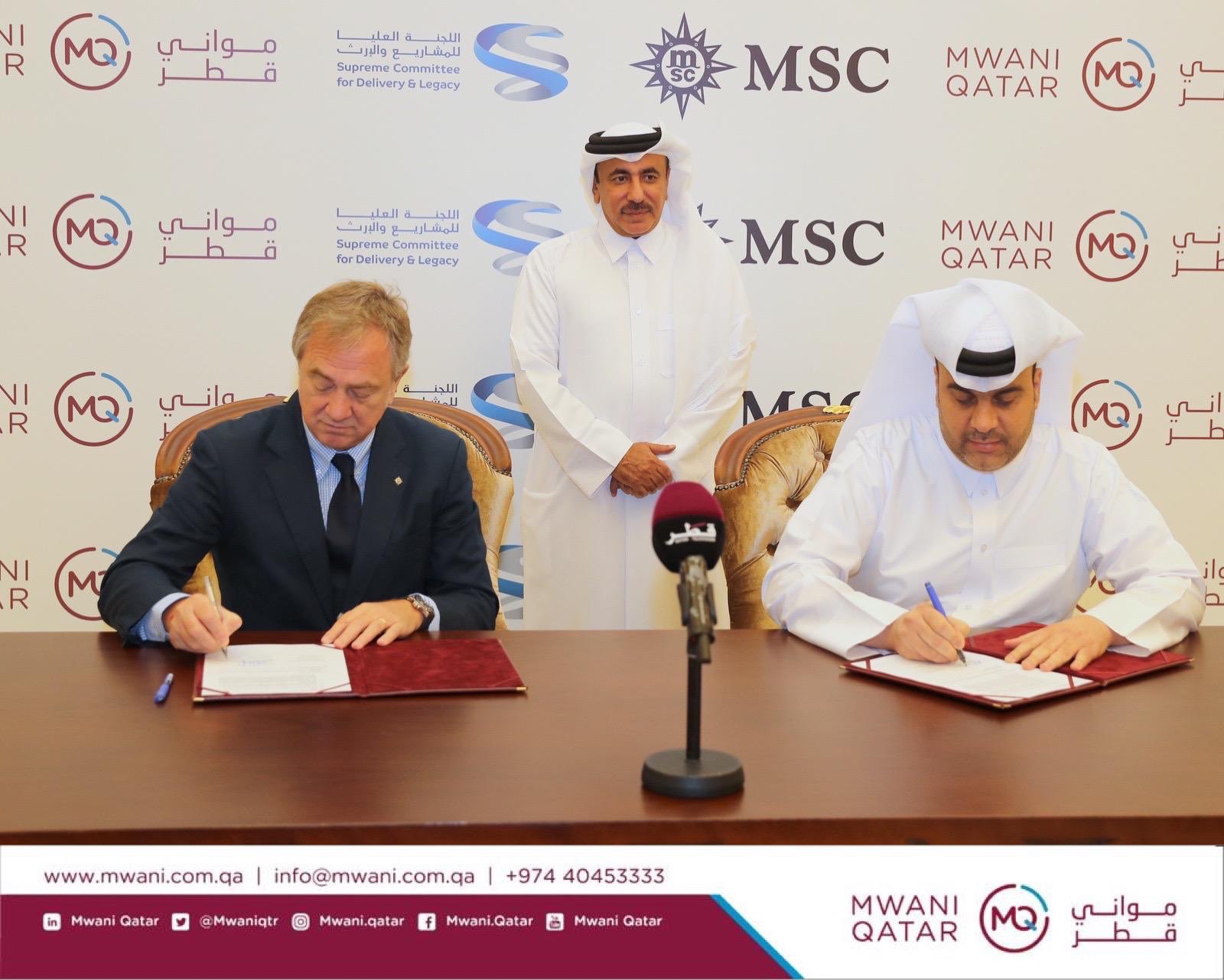The Mediterranean Shipping Company (MSC), the world's second-largest shipping line in terms of container vessel capacity, will use Hamad Port as its regional hub to manage transshipments for up to 150,000 containers per year, which is slated to grow to 1mn by 2023.

In this regard, a container services agreement was signed between Mwani Qatar and MSC in the presence of Minister of Transport and Communications HE Jassim Seif Ahmed al-Sulaiti.
"The agreement between Mwani Qatar and MSC is part of the Ministry of Transport and Communications’ strategic plan to transform Qatar into a vibrant regional trading hub in the region,” said the Minister, who is also the chairman of Mwani Qatar, which is responsible for managing the nation’s seaports and shipping terminals.
The transshipment operations are of the added value services that the world's hub ports seek to increase by attracting regular international shipping routes, he added.
The pact also enhances the competitiveness of Qatar and Hamad Port on the regional and international maritime transport map, as it will help attract more transshipment containers as well as encourage more international shipping lines to add Hamad Port to their regional routes and sign similar agreements in the future, the Minister noted.
Hamad Port has been able, in a short period, to occupy a distinguished position among the ports of the region in the volume of container and cargo handling.
The annual turnover of Hamad Port is one of the highest compared to neighbouring ports. It is also the second largest port in the region in terms of capacity at a rate of 7.5mn containers annually.
The agreement will enable Hamad Port to become a transit hub where the transport, loading and unloading of containers or cargo belonging to MSC will take place regionally, after which the cargo will reach the final destinations outside Qatar, according to Captain Abdullah al-Khanji, Mwani Qatar chief executive.
"The agreement contributes to the optimal utilisation of the capabilities of Hamad Port and will enhance the import and export operations through it," he said.
It also contributes to the utilisation of the differential advantages of Qatar's strategic location on international maritime trade routes and enhances Hamad's position and role in the national economy in line with the Qatar National Vision 2030.
Source: Gulf Times